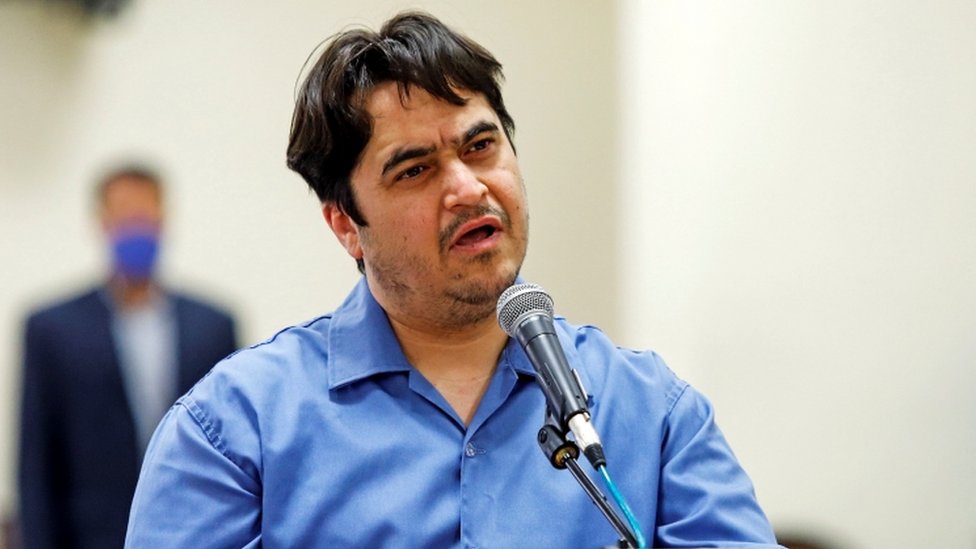
Iran has executed a journalist who was accused of using a messaging app to stir up dissent.
Ruhollah Zam was hanged on Saturday after the supreme court upheld a death sentence against him, state television reported.
Zam, who had been living in exile in France, was reportedly detained after travelling to Iraq last year.
He ran Amad News, a popular anti-government website Iran accused of inciting the 2017-18 protests.
The network, which had more than a million followers on the encrypted messaging app Telegram, shared videos of protests and damaging information about Iranian officials.
It was removed by Telegram for breaching the company’s rules on posting dangerous content, but later reopened under a different name.
Zam, the son of reformist cleric Mohammad Ali Zam, was convicted of “corruption on earth” – one of the country’s most serious offences – earlier this year.
However, human rights organisation Amnesty International said he had been the victim of “an unfair trial that relied on forced confessions”.

A strident critic silenced
Analysis by Siavash Ardalan, BBC Persian
This is the story of a man who fell victim to his own ambitions of leading a crusade against a regime bent on eliminating its opponents. By the time he was lured to Iraq from his exile in France to meet the grand Ayatollah Sistani in the hope of securing his support, Ruhollah Zam had become a household name in Iran.
Upon his arrest, the intelligence wing of Iran’s Revolutionary Guards (IRGC) posted news of its success on Amad News – the very platform on Telegram which Zam used to subvert the regime, incite disobedience and criticise opponents whom he viewed as being too soft.
Being the son of a previously high-ranking cleric was not enough to save his life. Once in Iran, Zam was put on trial and made to confess on TV. A number of TV pieces detailed his network of contacts and how he fell prey to an intelligence deception operation by the IRGC. One such semi-documentary was broadcast the night before his execution.

Earlier this week, the French foreign ministry described the decision to uphold Zam’s death sentence as “a serious attack on freedom of expression and freedom of the press in Iran”, according to Reuters news agency.
He had been granted political asylum in France, having been imprisoned in Iran after the disputed 2009 presidential election.
Iran’s Islamic Revolutionary Guard Corps (IRGC) previously said that it had used “modern intelligence methods and innovative tactics”, which enabled it to “deceive” foreign services and arrest Zam.
The IRGC alleged that Zam was “under the guidance” and protection of intelligence services in France, Israel and the US.
Source BBC













